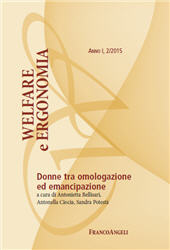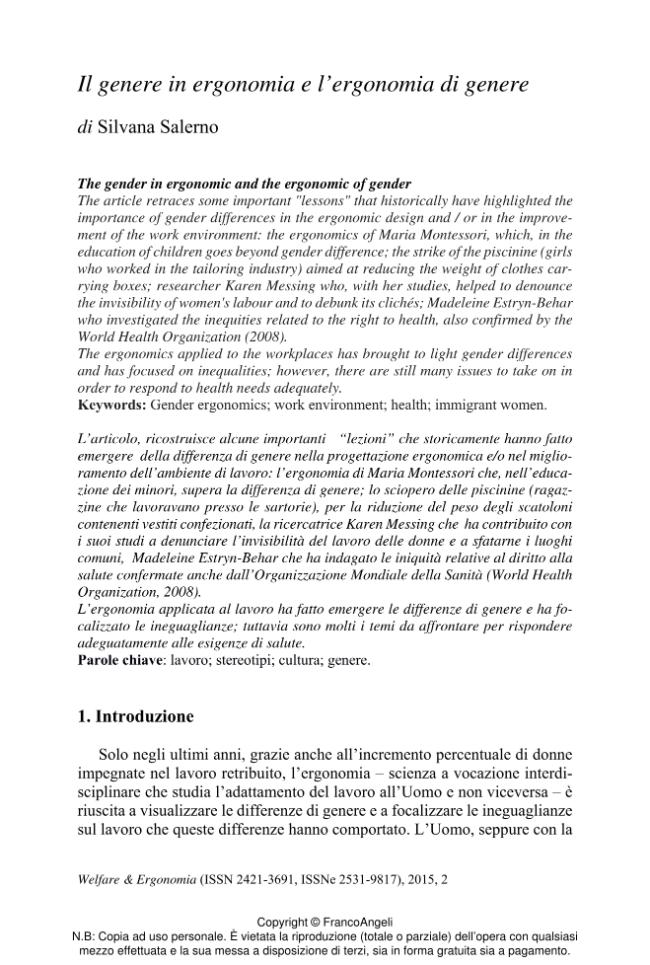Il genere in ergonomia e l'ergonomia di genere
13-23 p.
L'articolo, ricostruisce alcune importanti "lezioni" che storicamente hanno fatto emergere della differenza di genere nella progettazione ergonomica e/o nel miglioramento dell'ambiente di lavoro: l'ergonomia di Maria Montessori che, nell'educazione dei minori, supera la differenza di genere; lo sciopero delle piscinine (ragazzine che lavoravano presso le sartorie), per la riduzione del peso degli scatoloni contenenti vestiti confezionati, la ricercatrice Karen Messing che ha contribuito con i suoi studi a denunciare l'invisibilità del lavoro delle donne e a sfatarne i luoghi comuni, Madeleine Estryn-Behar che ha indagato le iniquità relative al diritto alla salute confermate anche dall'Organizzazione Mondiale della Sanità (World Health Organization, 2008).gonomia applicata al lavoro ha fatto emergere le differenze di genere e ha focalizzato le ineguaglianze; tuttavia sono molti i temi da affrontare per rispondere adeguatamente alle esigenze di salute. [Testo dell'editore].
The article retraces some important "lessons" that historically have highlighted the importance of gender differences in the ergonomic design and / or in the improvement of the work environment: the ergonomics of Maria Montessori, which, in the education of children goes beyond gender difference; the strike of the piscinine (girls who worked in the tailoring industry) aimed at reducing the weight of clothes carrying boxes; researcher Karen Messing who, with her studies, helped to denounce the invisibility of women's labour and to debunk its clichés; Madeleine Estryn-Behar who investigated the inequities related to the right to health, also confirmed by the World Health Organization (2008). The ergonomics applied to the workplaces has brought to light gender differences and has focused on inequalities; however, there are still many issues to take on in order to respond to health needs adequately. [Publisher's text].
Fait partie de
Welfare e ergonomia : I, 2, 2015-
Articles du même numéro (disponibles individuellement)
-
Informations
Code DOI : 10.3280/WE2015-002002
ISSN: 2531-9817
KEYWORDS
- Lavoro, stereotipi, cultura, genere
- Gender ergonomics, work environment, health, immigrant women



